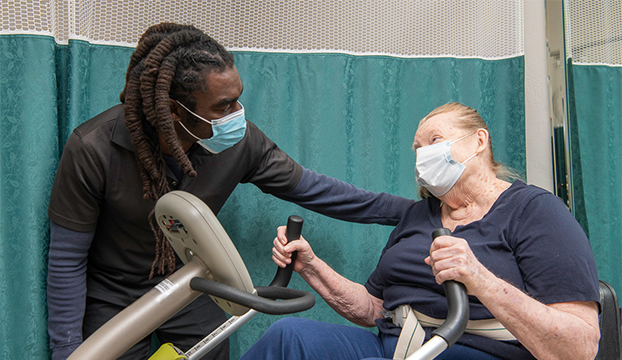Enabling Patients Through Social Support within Cardiopulmonary Recovery Programs.
Wiki Article
Cardiopulmonary rehabilitation programs are designed to assist individuals with cardiac and pulmonary conditions improve their health and standard of living. These initiatives commonly include physical exercise, instruction about cardiac and lung health, and assistance for implementing lifestyle modifications. Nonetheless, one important aspect that is sometimes neglected is the importance of emotional assistance. Psychosocial assistance refers to the emotional and social assistance that individuals receive during their recovery process. This assistance can strengthen patients, boost their self-esteem, and assist them manage the challenges that arise with long-term health issues.

Individuals in cardiac and pulmonary rehabilitation often face various psychological and emotional challenges. Emotions of anxiety, depression, and isolation can be prevalent. These feelings may stem from the pressure of confronting with a serious health condition or the concern of future medical issues. Psychosocial assistance can aid address these feelings by offering patients with a safe space to talk about their worries and bond with others who comprehend what they are experiencing through. Group counseling sessions and one-on-one therapy can be effective ways to promote this assistance. By interacting with professionals and others, patients can learn adaptation strategies and find support from others who have similar experiences.
Integrating emotional support into cardiac and pulmonary rehab programs can lead to improved medical outcomes for individuals. Studies show that when individuals receive emotional assistance, they are more likely to adhere to their rehabilitation plans, follow to treatment, and implement necessary lifestyle modifications. This involvement can lead to improved health health, lessened hospitalizations, and an entire improved quality of see living. Support groups can encourage motivation and accountability, assisting patients remain committed to their rehabilitation goals. This collaborative method highlights the significance of addressing both bodily and emotional well-being in the recovery process.
Teachers and medical providers play a vital part in offering emotional assistance within these initiatives. They can assist patients understand the importance of mental health in their recovery journey. By creating an atmosphere of empathy and understanding, healthcare providers can encourage open communication about feelings and concerns. Training staff in communication skills and emotional assistance strategies can enhance the overall individual journey. Moreover, incorporating instruction about anxiety reduction, calming techniques, and healthy coping strategies can enable patients to take an active part in their emotional well-being.
To summarize, strengthening individuals through psychosocial support in cardiopulmonary rehabilitation initiatives is crucial for promoting comprehensive recovery. By recognizing the emotional and social dimensions of recovery, medical professionals can create a more nurturing atmosphere that meets the requirements of the entire individual. Patients who receive this holistic care are more apt click for more info to attain their well-being goals and enhance their total standard of living. The integration of psychosocial support into recovery initiatives not only improves the patient experience but also contributes to better sustained medical outcomes.